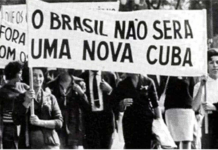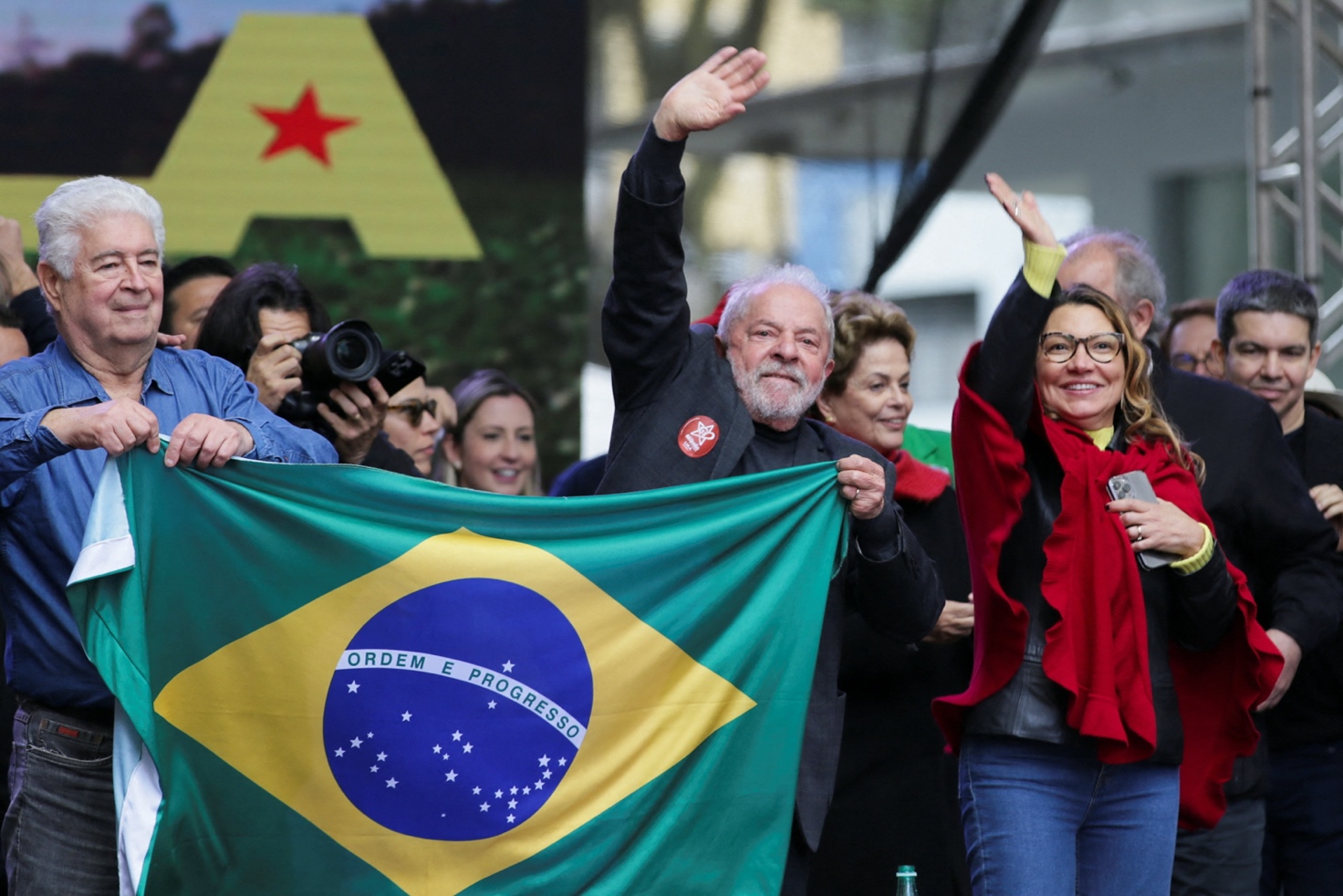
Political Intrigue Grows As Brazilian Election Approaches
[This is Part 3 of a three-part series. See Part 1 and Part 2.—Editors]
Déjà vu is playing out in Brazil. After protracted media and judicial campaigns against former president Luíz Inácio Lula da Silva, translating into his imprisonment for one-and-a-half years, the effect has been minimal, if any, as far as the 2022 presidential polls are concerned. Once again, Lula, as he did four years ago before being jailed by federal police and denied the chance to run, leads all polls for a third term in office.
According to the most recent Datafolha poll (29 September), Lula, sporting 50 percent of valid votes, remains as the undisputed frontrunner among the throng of presidential hopefuls. Incumbent president, Jair Bolsonaro, trails in second place at 36 percent.
Impressive as the feat is, a clear indication of the former head of state’s sustained popularity, the headline news unfolds with a virtually inexplicable, seemingly self-imposed, cloud hanging over his campaign. Many are all too aware of Bolsonaro’s brazen challenge; however, little has been deciphered from Lula’s allying with the disgraced ex-governor of Säo Paulo, Geraldo Alckmin, to be his vice-presidential running mate.
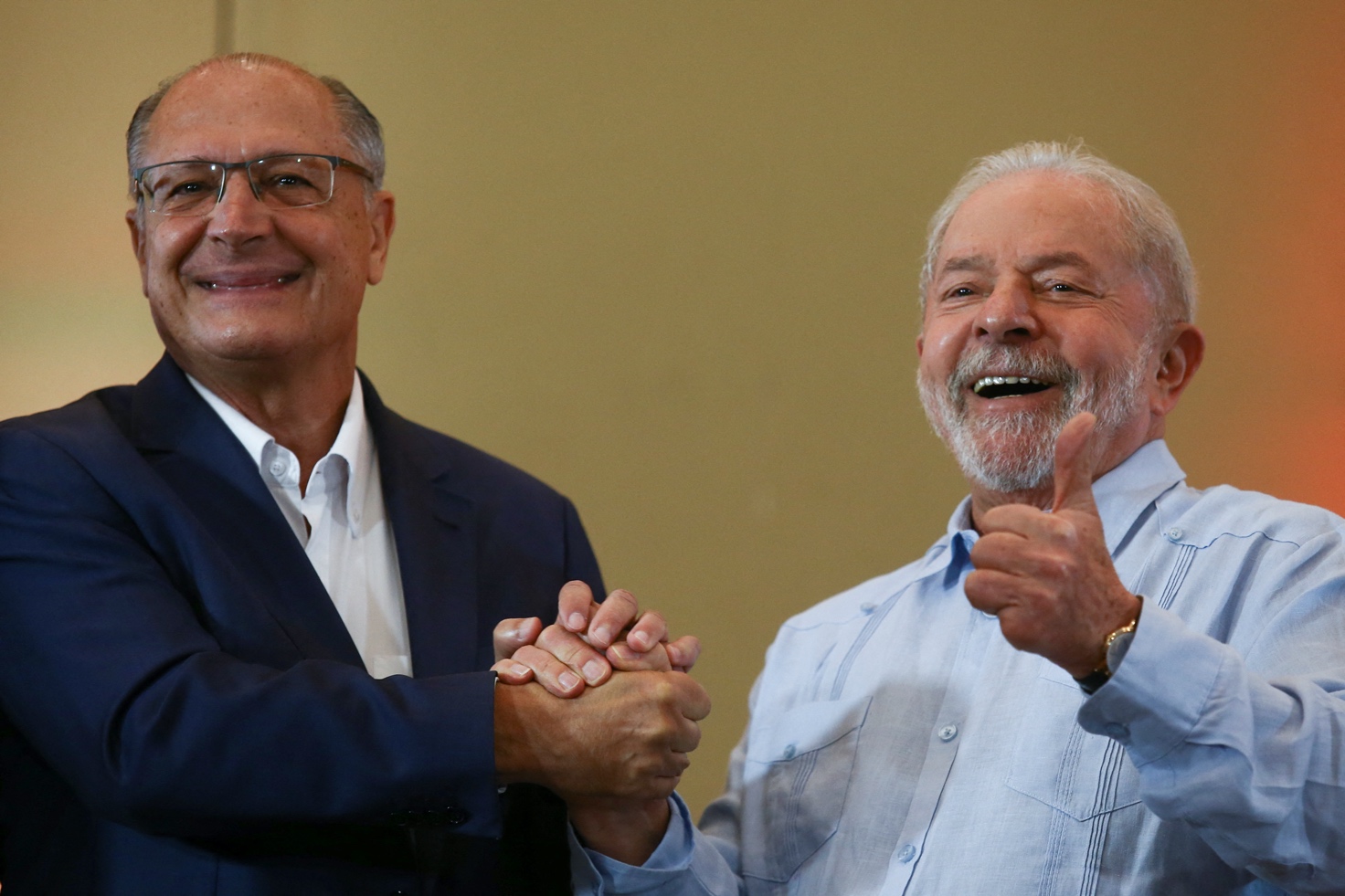
Their union, improbable given Alckmin’s long-standing and intractable opposition to the Workers’ Party (PT) and Lula himself, even supporting his imprisonment on false charges in 2018, comes within the regional context of the recent Colombian presidential election outcome.
In a country ravished by more than half a century of civil war, leaving more than 260,000 people dead and nearly five million people displaced, Colombian voters elected a former M-19 guerrilla fighter, Gustavo Petro, as their new leader. In stark contrast to Lula’s pick, Petro’s running mate and now serving vice president is Francia Márquez, a land and environmental activist who defended the rights of her rural, ancestral community of La Toma against multinational mining interests and paramilitary groups.
Unlike Alckmin, a conservative career politician, so states his record, it is the first time Márquez holds public office and her social activism work long pre-dates the assassination of nearly 1,300 social leaders assassinated since the signing of the peace accord in November 2016 (through January 31, 2022) between the Colombian government and FARC.
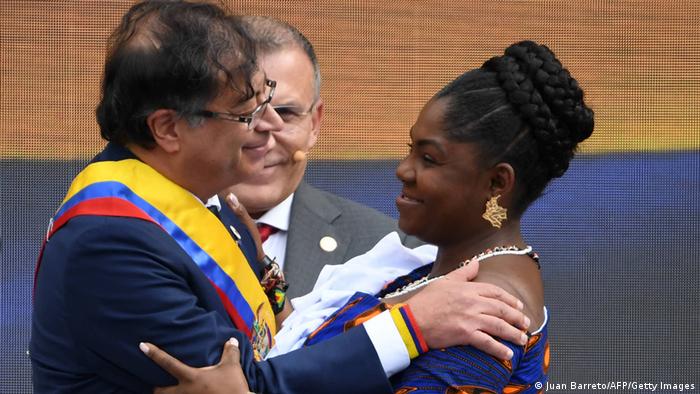
Vying Forces Kiss and Make Peace or…
Is Lula under threat? Are obscure forces worming in the shadows far from the cameras broadcasting a hectic, 24-hour presidential election cycle? Might someone be whispering into his ear to either accept Alckmin as his vice-presidential choice or face the wrath of Brazil’s quote-unquote judicial system again; face the wrath of lawfare again; be subjected to a barrage of false accusations by unscrupulous media personalities and officials, put on trial, condemned and face another prison stint?
Speaking at the Seventh International Congress on Compliance, held in São Paulo (2019), David Brassanini, head of the FBI in Brazil, said, “Brazilian federal police agents have recently told me that even if they had no more additional information, nor conducted investigative work, they’ll still have material to conduct corruption and money laundering inquiries for the next five years.”
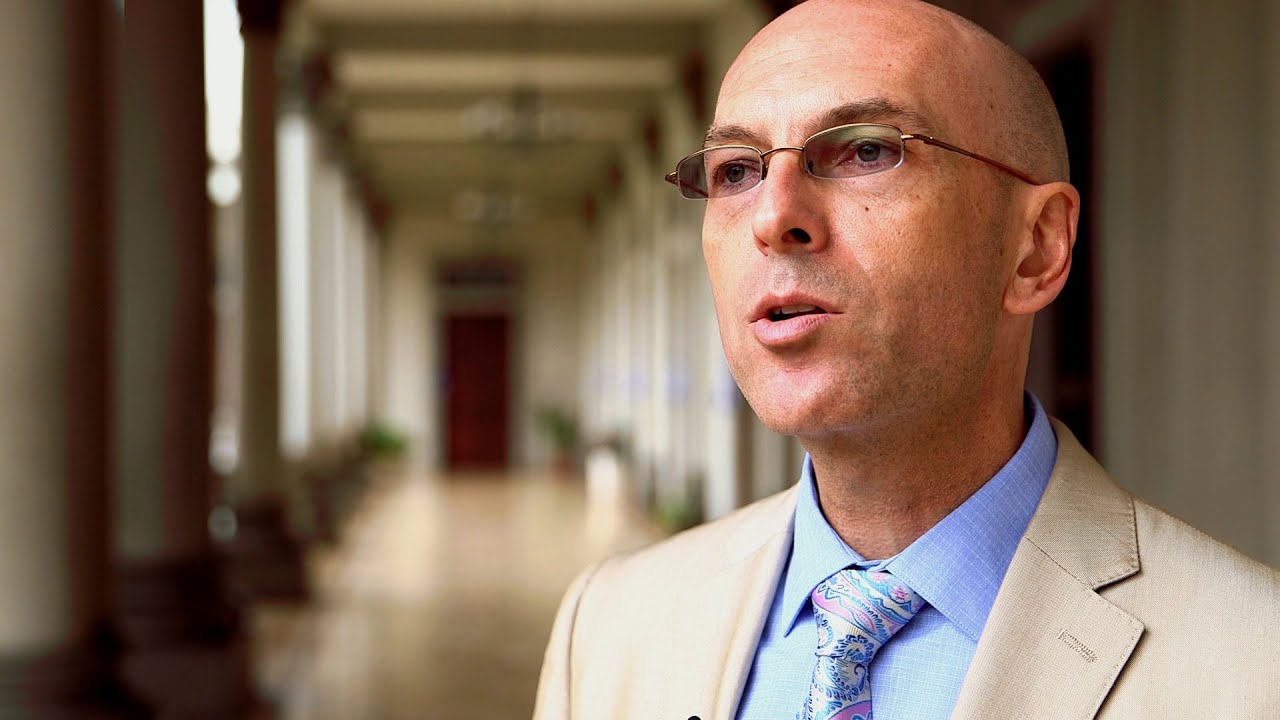
The time frame brings us to 2024, that is, two years into the administration of whoever is elected as Brazil’s next president. Who else might be slated for a run-in with the courts, trials involving, as Brassanini suggests, “corruption and money laundering inquiries,” the kind that could railroad their campaign or mandate?
Time will tell.
(Un)exceptionalists Observe
For reasons known or unknown, keeping friends close and enemies even closer is an adage that lives and breathes in Lula’s 2022 presidential campaign. His invocation of “jealousy” over a recent speech by Alckmin, is as staggering as comments by Bolsonaro voicing repeated doubt in the country’s electoral system, thus drawing concerns of a potential coup.
Back in 2019 federal judge Ivani Silva da Luz blocked a request by Bolsonaro to hold military celebrations on the 55th anniversary of the army takeover. In her decision, Silva da Luz wrote that the request “disobeys the prevailing principals of human rights” and that such a commemoration represents a “departure from society’s ideals of reconciliation.” With more than 60 blocked probes into statewide corruption under his belt during his time in office, her remarks could have easily been mistaken for a rebuttal to Alckmin’s governorship of São Paulo.
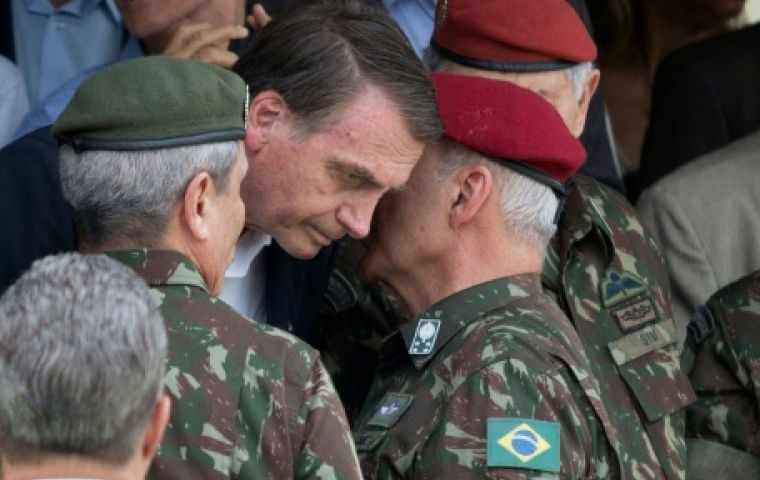
With Bolsonaro continuing to express misgivings in Brazil’s electronic ballot, stating that he will only accept “clean” results without providing evidence of any dirty dealing at play, the U.S. embassy chimed in, releasing an official statement in defense of the country’s voting mechanism. “Conducted and tested over time by the electoral system and democratic institutions, Brazilian elections serve as a model for the nations of the hemisphere and the world,” it read.
U.S. State Department spokesperson Ned Price also weighed in on Brazil’s upcoming presidential election. Reaffirming the same excerpt as the U.S. embassy, he went on to state that the United States of America will observe events “with great interest.” Sound remarks from an official of a country that not only went through a lethal transition of power following its 2020 presidential election but also views the southern half of the hemisphere as its “backyard.”
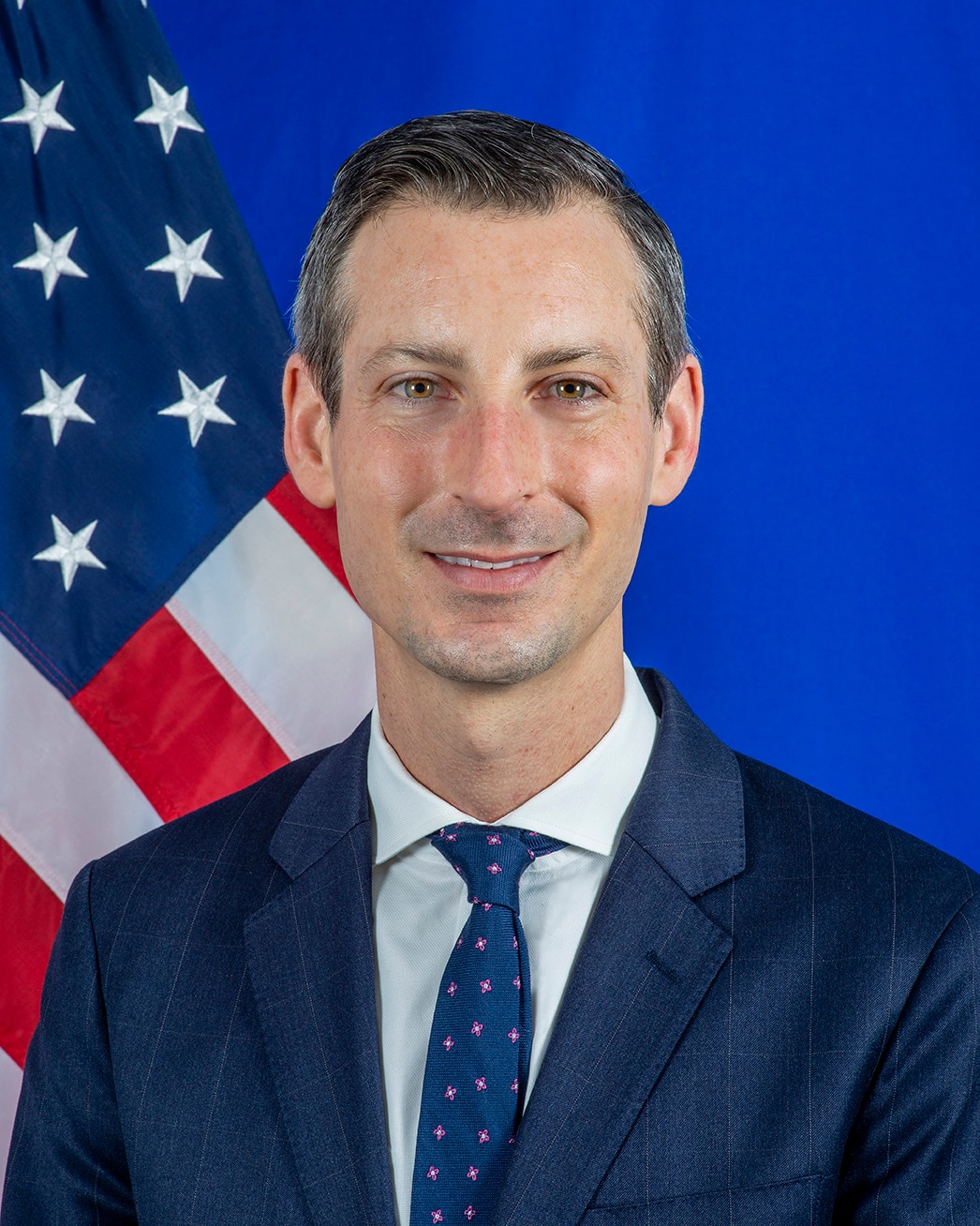
It is one grade up from how the region—Pachamama/Abya Yala/Indoamerica—would still be viewed, that is, land of “savages,” had it not been for European colonization. The mindset of an empire in decline, outwardly dangerous and detrimental as it is inwardly sick, remains one of supreme and universal utility.
Since 1776, the United States has conducted more than 500 military interventions across the world, not to mention any of its covert actions aimed to undermine, weaken, or topple governments—more than 600 failed or aborted attempts just to assassinate one leader of a small Caribbean island, including the use of an exploding cigar, poisonous pen, a colorful seashell laced with explosives, and contaminated diving suit.
A whopping 60% of the U.S.’s military campaigns occurred between 1950 and 2017 and one-third of those missions took place after 1999. Despite this almost ubiquitous war machine stationed across the globe, the average, and increasingly educated and well-traveled American, is woefully oblivious to this and other basic realities.
One sunny day, an American university student was raving on and on as she told me of her deep love for Brazil. “I love Brazil!” she said confidently. “I just love it, I love Eva Peron!” I refrained from temptation. On the tip of my tongue was to tell her that Brazil, this country she adored, had two official languages, Spanish and maybe I’d risk English. Young lady, her enzymes kicking into overdrive, would have corrected me in a heartbeat but if her studies were geared toward specializing as a Brazilianist or expert in Latin America, she certainly had some distance to go. Personally, it would not have surprised me if she was already an experienced pundit or academic in the field.
One thing is certain: U.S. foreign policy makers and their junior partners—like Canada, also guilty of spying against Dilma Rousseff’s presidency—do not want Brazil to venture beyond its sphere of influence or compliance, regardless of who holds power. This prerogative has become all the more necessary based on challenges to yankee imperialism across the globe.
Pairing a Circle with a Square
Questions surrounding Alckmin’s turncoat leap from one political anchor to its ideological opposite remain. A relic from the old political guard, his reflection mirrors the likes of Brazil’s interim president, Michel Temer (2016-2019) more than anything else. As Lula attested in past times, Alckmin’s likeness to the former interim head of state represents “two faces of the same coin: the neoliberal agenda that has sunk the country…and has currently put the country in one of its worst crises in its history under the baton of the illegitimate government of Michel Temer.”
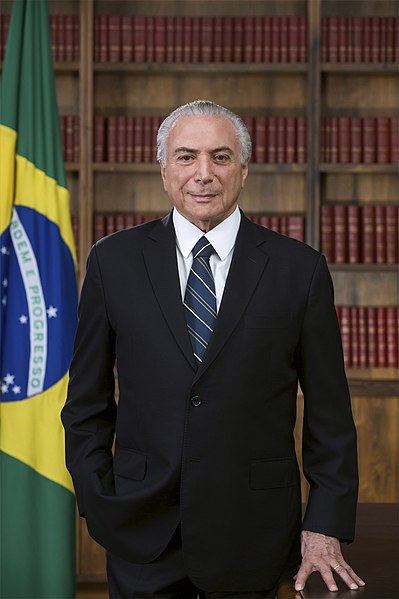
Few can place their finger on what prompted Lula’s sudden change of heart: Bolsonaro’s calamitous presidential mandate, a presumed summons to unite left and right to end, in the words of Brazilian Socialist Party (PSB) President Carlos Siqueira, “arbitrariness” and “barbarism,” has not quelled their apprehension.
Whatever the answer, they know, in their gut analysis, that the Lula-Alckmin combine makes for peculiar bedfellows. In a Venezuelan context, it is equivalent to President Nicolás Maduro choosing or accepting Juan Guaidó as his vice president. In Bolivia, it is like Luis Arce asking Jeanine Áñez to serve as head of the armed forces. In short, political compromise or alliances have limits.
Alison, a public school teacher in São Paulo, told me a few weeks ago that he and other Lula supporters want and aspire for a “revolutionary government.” For him, for so many who lived through and experienced firsthand the positive effects of Lula’s two-term presidency, the pink tide’s fluorescent hue has not increased in intensity.
They see no orange. Forget red. All political indicators suggest a repetition of what has already passed and a return to what once was, albeit marked by improvements from Brazil’s low social bar, one of the most unequal societies on Planet Earth before Lula came to office, brings no brighter horizons. Moreover, it adds no depth of resistance to enemies standing in the way of or primed to reverse political and social progress.
Case in point: In 2013, despite Brazil’s immense size and population, one of the richest yet unequal societies on Earth, it still required Mais Médicos (More Doctors), solidarity aid from Cuba in the form of a medical brigade. Before their contracts were annulled by Bolsonaro’s administration, they attended to the well-being of poor communities and underserved rural areas. Why?
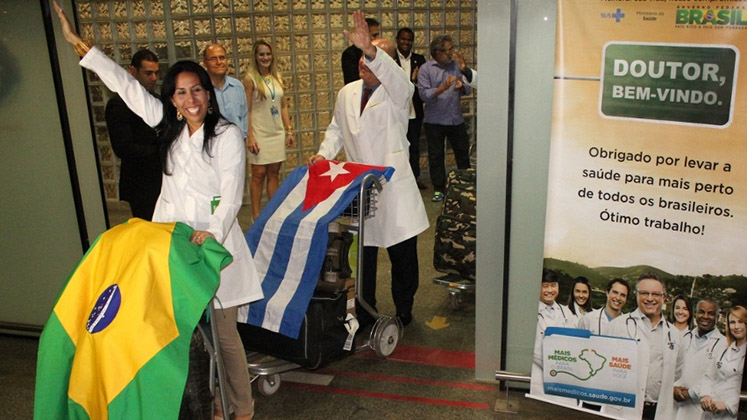
Because Brazil produces doctors and nurses unwilling to serve in the favelas, quebradas (ghettoes), and hinterland regions. Standing at one of Fortaleza’s (Ceará) International Airport terminals were a gang of white-coated Brazilian medical professionals who shouted “slaves” and other epithets at their Cuban counterparts as they disembarked.
Observing the current turn of events with scornful eyes, the proponents and cohorts of Operation Condor turned Operation Lawfare are secure in knowing that they are well-versed, in theory and practice, in how to deal with a new pink tide.
Bolsonaro’s Second Bid
Undaunted by perceived U.S. backing for Brazil’s electoral process and that he trails Lula in every poll, Bolsonaro has vowed three options in his bid for re-election: being “imprisoned, killed, or victorious.” With such frequent outbursts, it is little surprise that the media have focused their coverage on his no holds barred showdown with the former president.
In an odd twist, U.S. foreign policy makers of the day are probably displeased with Bolsonaro’s influence or leadership at MERSOCUL (Southern Common Market). Comprised of Argentina, Brazil, Paraguay and Uruguay, the South American economic and political integration bloc recently prevented Ukrainian President Volodymyr Zelensky from addressing the organization. Paraguay’s Vice Minister of Foreign Affairs, Raúl Cano, stated that “there was not a consensus” among member states to allow the Western-backed Ukrainian leader to speak.
Despite labels traditional progressive activists attribute to Bolsonaro, “fascist” and “Trump of the Tropics” being two of the most popular, as if those categorizations are uniquely his to flaunt, Brazil’s president is merely a tiny symbol of much deeper-rooted problems nationwide.
My conclusion, after having lived in the states of Bahia, Rio Grande do Norte and Minas Gerais for seven years, is that those underpinned, foundational issues long pre-date Bolsonaro. They amount to borderline irreparable damage, that is, if one ignores the drumbeat of Ogum or the Guaraní-Kaiowá in Tekoha Jopara who still speak their ancestral languages and continue to struggle to reclaim their homelands which have never been demarcated. They are the living legacy of Palmares and Canudos.
Sadly, this history and reality is, more often than not, reserved for exotic, lazy, and distorted portrayals by the media.
“Tá tudo errado” (Everything’s messed up) some youths would tell me in Salvador and Prado (Bahia). For them, like so many others, the consecration of the tens of millions of loyal Bolsonaristas with the election of their man, regardless of the chicanery that stripped Lula of the right to run, and following 13.5 years of PT federal governance, an attempt to right 500-plus years of political skullduggery, was like the coming of Pontius Pilate to the tropics.
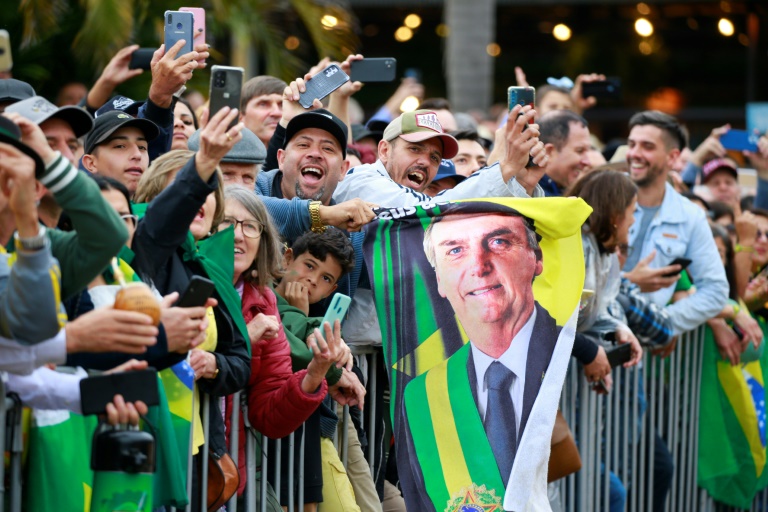
I also share in their demanding impression that the pink tide, for all its successes, trials and tribulations, has had a good run but has now finished this stretch of the race. Echoing this sentiment was a former TeleSUR colleague, Clint Nzala, who told me that, “If they [pink tide leaders] ever return to power they must go all out, not just halfway.”
Lula’s Third Bid
“Lulinha, paz e amor” (Little Lula, peace and love) is one of the former president’s old campaign slogans. Maybe he will reincorporate it during the final leg of this campaign season. To the people of Brazil, irrespective of political persuasion, it is a call for unified strength moving forward and forgiveness for his past mistakes and whatever shortcomings he possesses; to those who intentionally or haphazardly cast their votes for Bolsonaro four years ago and now seek expiation for their guilt by re-re-electing Lulinha; to recognize the grisly chapter in which the country finds itself and make amends.
“I want to be better than what I was,” Lula told National Journal (Globo) news reporters William Bonner and Renata Vasconcellos during an interview in August. After defending himself and his track record, he went on to cite Paulo Coelho to explain to his supporters why he had chosen Alckmin as his vice-presidential running mate. “Sometimes we must join with people of divergent views in order to defeat the antagonists.” “Now,” he continued, “we must defeat the antagonism of fascism, of the far-right.”
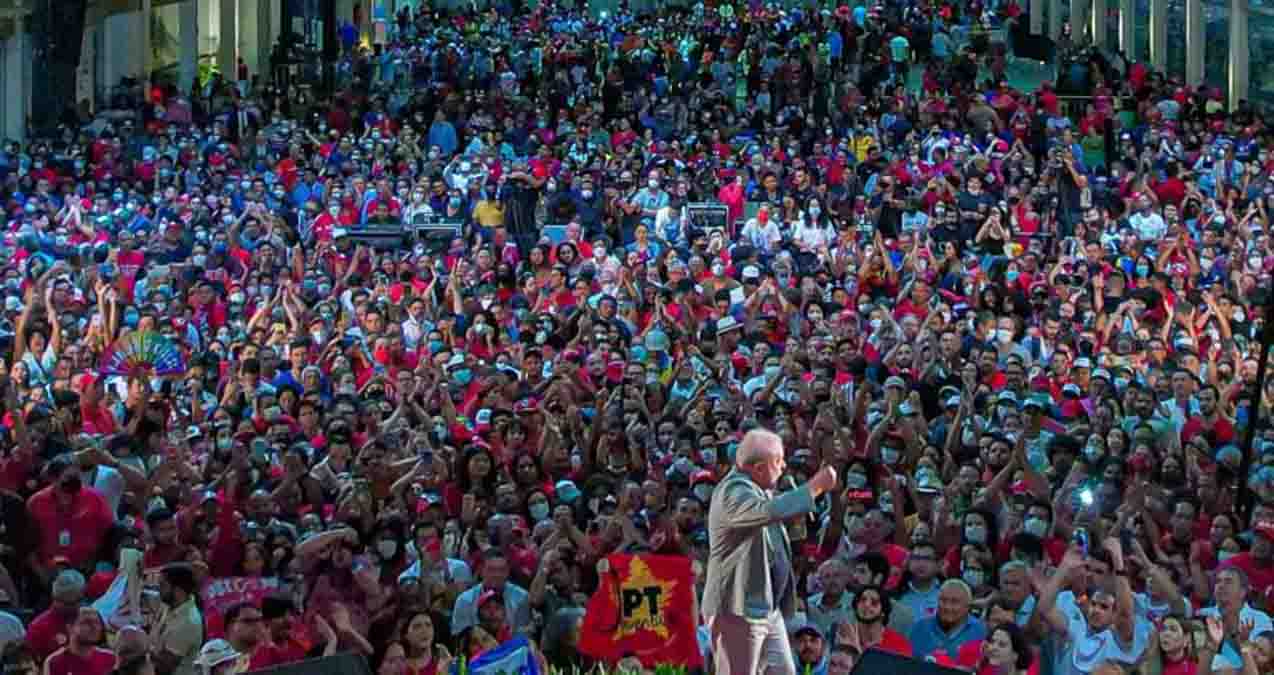
Amidst all of the political jingles, rallies and speeches, the rapture of a presidential campaign that jars Brazil like few in recent history, Lula’s return to the political arena is victorious. Great joy and even greater expectations accompany his projected victory. At the same time, his enemies, quite frankly, have gone nowhere and there is no known force within Brazil—at least no force traditional progressive activists, popularly known as the “esquerda caviada” (caviar-consuming left), are willing to acknowledge and accept—to help bring them to heel.
Two months after PT treasurer in the city of Foz do Iguaçu, Marcelo Aloizio de Arruda, was fatally gunned down by a police officer and Bolsonaro supporter, Jorge José da Rocha Guaranho, Datafolha conducted a survey where 67.5% of respondents stated they feared being the victim of physical aggression due to their political choices. Titled, “Violence and Democracy: 2022 Brazilian Pre-Election Panorama, Perceptions of Fear of Violence, Authoritarianism, and Democracy”, the study also showed that 3.2% percent of respondents claimed to have already been threatened for the same reason. Over two-thousand people were questioned for the survey between the 03 and 13 of August 2022.
White House spokeswoman, Karinne Jean-Pierre, also commented on the upcoming Brazilian elections a week before people went to the ballot box. “We have seen recent reports of violence and although the right to protest is fundamental in any democracy the United States condemns any violence and urges Brazilians to make their voices heard in a peaceful manner. (…) As a partner democracy in Brazil … or to Brazil … we will continue to follow the elections with the full expectation that they will be conducted in a free, fair, transparent, and credible manner with all relevant institutions operating in accordance with the constitutional order.”
With increased threats of violence looming in the final days before voters cast their ballots, Brazil’s Supreme Electoral Court (TSE) banned the transportation of firearms and munitions in all electoral zones and within 100 metres of polling stations on election day (Sunday / 02 October). The restriction takes effect 48 hours before the election date and ends 24 hours afterwards. Voting in favour of the measure, judge Ricardo Lewandowski said that society is faced with the threat of “heightened confrontation” as a result of “increased political polarization, a phenomenon that has been intensified by social media.”
Meanwhile, Lula’s foes are well known. They have not and will not operate under the rubric of peace and love. They have not pardoned him for allowing the children of maids and bricklayers working for the rich and upper-middle class to sit, study and voice their opinions and views about the country at the same universities as their kids.
They have not forgiven him for lifting millions out of poverty, affording them the time and privilege to fly on airplanes, sitting in the seats next to their bosses as they go on vacations with their families.
Albeit released from prison, absolved of crimes for which he once was falsely accused, they have not acquitted him. Now, their preferred candidate, Geraldo Alckmin, a conservative, right-wing politician who Lula defeated in two previous presidential runs, walks shoulder to shoulder with the beloved former president, the most popular in the country’s history when he left office with an 83% approval rate.
And despite all of the past successes and current jubilee, the same corrupt judiciary, political institutions and players together with their puppeteer media-makers, and foreign spy tentacles, the cauldron of forces that conspired to put Lula behind bars just four years ago, stand bold and afresh, ready for round three. For them, those who have historically controlled, manipulated, and influenced the political and economic levers of state power, and having railroaded Lula’s 2018 presidential campaign run via lawfare, nothing short of a prophylaxis would help reduce the risk of a similar scenario.

CovertAction Magazine is made possible by subscriptions, orders and donations from readers like you.
Blow the Whistle on U.S. Imperialism
Click the whistle and donate
When you donate to CovertAction Magazine, you are supporting investigative journalism. Your contributions go directly to supporting the development, production, editing, and dissemination of the Magazine.
CovertAction Magazine does not receive corporate or government sponsorship. Yet, we hold a steadfast commitment to providing compensation for writers, editorial and technical support. Your support helps facilitate this compensation as well as increase the caliber of this work.
Please make a donation by clicking on the donate logo above and enter the amount and your credit or debit card information.
CovertAction Institute, Inc. (CAI) is a 501(c)(3) non-profit organization and your gift is tax-deductible for federal income purposes. CAI’s tax-exempt ID number is 87-2461683.
We sincerely thank you for your support.
Disclaimer: The contents of this article are the sole responsibility of the author(s). CovertAction Institute, Inc. (CAI), including its Board of Directors (BD), Editorial Board (EB), Advisory Board (AB), staff, volunteers and its projects (including CovertAction Magazine) are not responsible for any inaccurate or incorrect statement in this article. This article also does not necessarily represent the views the BD, the EB, the AB, staff, volunteers, or any members of its projects.
Differing viewpoints: CAM publishes articles with differing viewpoints in an effort to nurture vibrant debate and thoughtful critical analysis. Feel free to comment on the articles in the comment section and/or send your letters to the Editors, which we will publish in the Letters column.
Copyrighted Material: This web site may contain copyrighted material the use of which has not always been specifically authorized by the copyright owner. As a not-for-profit charitable organization incorporated in the State of New York, we are making such material available in an effort to advance the understanding of humanity’s problems and hopefully to help find solutions for those problems. We believe this constitutes a ‘fair use’ of any such copyrighted material as provided for in section 107 of the US Copyright Law. You can read more about ‘fair use’ and US Copyright Law at the Legal Information Institute of Cornell Law School.
Republishing: CovertAction Magazine (CAM) grants permission to cross-post CAM articles on not-for-profit community internet sites as long as the source is acknowledged together with a hyperlink to the original CovertAction Magazine article. Also, kindly let us know at info@CovertActionMagazine.com. For publication of CAM articles in print or other forms including commercial internet sites, contact: info@CovertActionMagazine.com.
By using this site, you agree to these terms above.
About the Author
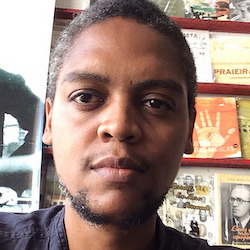
A former editor-at-large for African Stream and ex-staff writer at Telesur, Julian Cola is publishing a memoir of intimate, community-inspired stories titled “Proibidão (Big Prohibited): Off-Grid Correspondence From Brazil & Ecuador.”
The pre-launch is in December 2025. It includes media beefs and, having taught in the teaching-English-industrial-complex, the book discusses linguistic soft-power in the region and creative ways of dealing with it as mentioned in the essay, Listening To 2Pac In The Andes (Kawsachun News).
For more information contact: traducoessemfronteiras@protonmail.com









